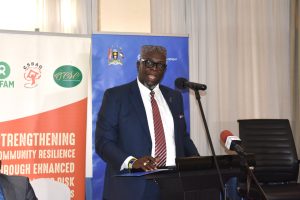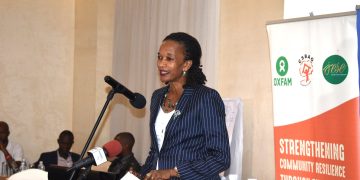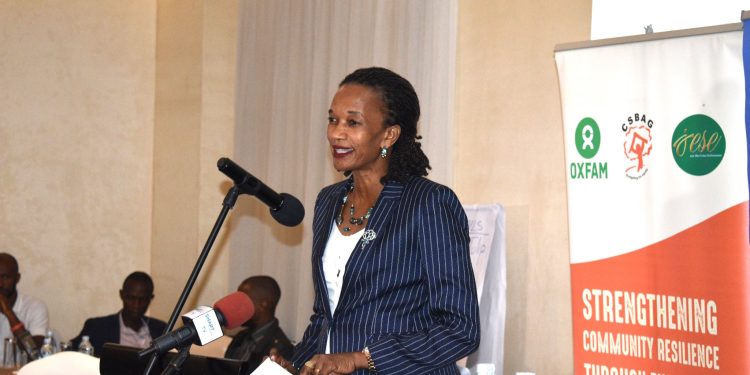The Minister of State for Relief, Disaster Preparedness and Refugees, Esther Davinia Anyakun, has noted that a holistic approach involving the Governments, Partners, Communities, and Businesses is critical for strengthening and operationalizing disaster Contingency Plans.
Speaking at the National Dialogue on Strengthening Disaster Contingency Planning and Funding at the National and District Levels, Anyakun said that many districts have developed multi-hazard contingency plans and some are in the process of operationalizing the plans.
She said these should be integrated into the Ministry, Department, Agency or District Development Plans to ensure effective implementation.
Anyakun noted that entities undertaking multi-hazard contingency planning should consider the involvement of the private sector in the processes.
Commenting on the dialogue, Anyakun said acknowledged the efforts of all actors for the remarkable steps towards institutionalizing risk management in both the third National Development Plan (NDP3) and the recently launched Disaster Risk Management Plan (DRM-Plan).
She said the dialogue should explore mechanisms for effective financing of the structures identified in the National Disaster Management Policy for coordinating disaster preparedness and response interventions, including operationalizing the multi-hazard contingency plans of MDAs and District Local Governments.
She thanked the European Union Humanitarian Aid Commission (ECHO) that committed resources through their various implementing partners and projects for the development and completion of Multi-hazard contingency plans in Karamoja and West Nile sub-regions and other refugee hosting districts.
The minister also called upon the EU and other partners to consider extending such support to other high-risk and non-refugee hosting districts such as Elgon, Bukedi, Lango, Acholi as well as parts of central and western Uganda.
The dialogue is a joint arrangement of the Government of Uganda, the International Organization for Migration (IOM) and the Civil Societies, represented by the Civil Society Budget Advocacy Group (CSBAG), intended to bring together stakeholders involved in Disaster Risk Management.

The IOM Uganda Chief of Mission Sanusi Tejan said, “Contemporary migration governance, policy and practice must reflect the significance of environmental, disaster and climate change factors on human mobility.”
He noted that IOM, with the support of European Union Humanitarian Aid, is supporting various disaster preparedness efforts through the project titled: “Strengthening National and Local Disaster Preparedness and Response Capacities”.
Julius Mukunda, the ED CSBAG Uganda, noted that contingency Funding should be informed by data from across different sectors which thereafter informs the budgeting process.
He said disaster preparedness should be mainstreamed in all government Ministries, Departments, and Agencies.









